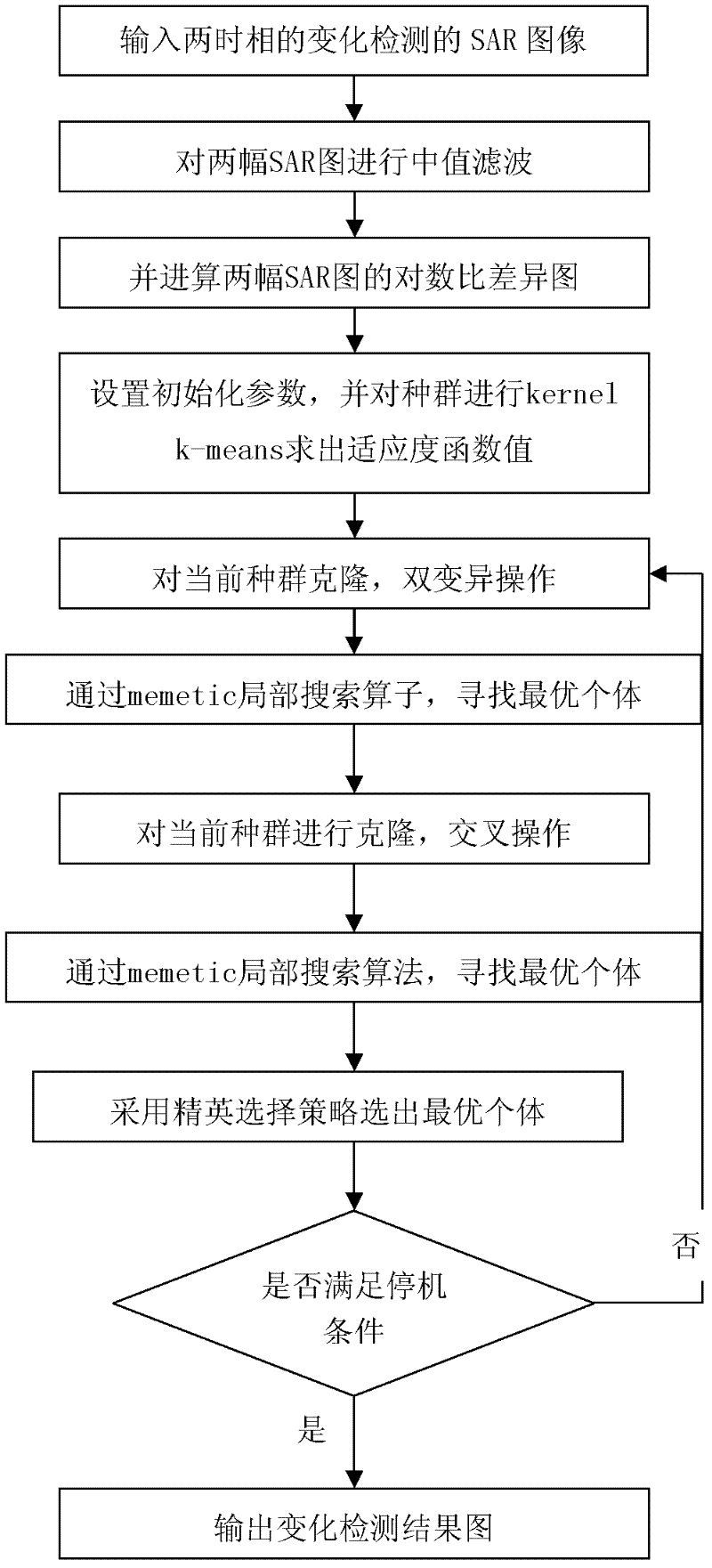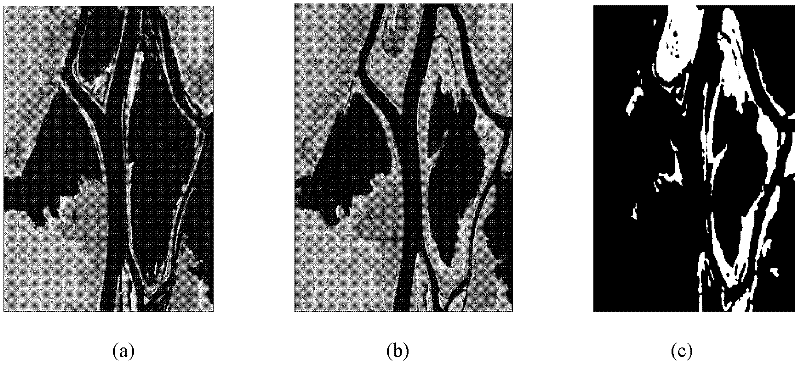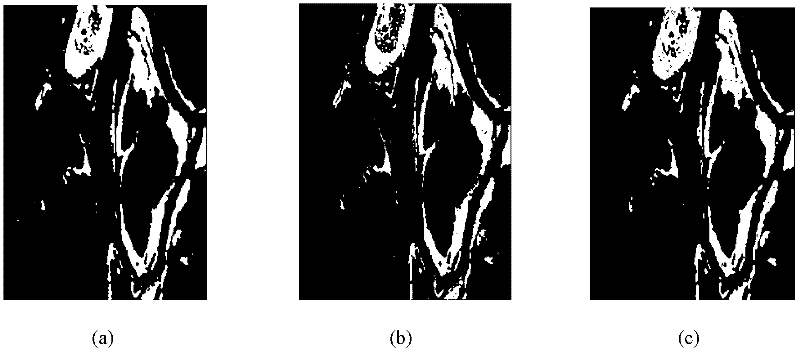SAR (Synthetic Aperture Radar) image change detection method based on Memetic kernel clustering
An image change detection and image detection technology, which is applied in the field of image processing, can solve the problems of inaccurate edge positioning, affecting consistent edge performance, and long time consumption, so as to improve edge preservation, regional consistency and edge preservation performance. , Reduce the effect of low error checking rate
- Summary
- Abstract
- Description
- Claims
- Application Information
AI Technical Summary
Problems solved by technology
Method used
Image
Examples
Embodiment Construction
[0028] refer to figure 1 , the specific implementation steps of the present invention are as follows:
[0029] Step 1: Filter the two SAR images at different times to be detected. Here, select the median filter in morphology and use this filter to filter the input two-temporal images to obtain the filtered image I 1 and I 2 .
[0030] Step 2: On the filtered image I 1 and I 2 , find the logarithmic ratio difference image I 3 , and will get the I 3 The gray value of is used as a clustering dataset.
[0031] (2a) Calculate the logarithmic ratio difference image I of the change detection two-temporal SAR image D :
[0032] I D =|log(I 2 +1)-log(I 1 +1)|;
[0033] (2b) Normalize the difference image to obtain the logarithmic ratio difference image map I 3 :
[0034] I 3 =255*(I D -I min ) / (I max -I min );
[0035] where I max =max(I D ) means I max The maximum gray value in the medium, I min =min(I D ) means I min Minimum grayscale value.
[0036] Step 3...
PUM
 Login to View More
Login to View More Abstract
Description
Claims
Application Information
 Login to View More
Login to View More - R&D
- Intellectual Property
- Life Sciences
- Materials
- Tech Scout
- Unparalleled Data Quality
- Higher Quality Content
- 60% Fewer Hallucinations
Browse by: Latest US Patents, China's latest patents, Technical Efficacy Thesaurus, Application Domain, Technology Topic, Popular Technical Reports.
© 2025 PatSnap. All rights reserved.Legal|Privacy policy|Modern Slavery Act Transparency Statement|Sitemap|About US| Contact US: help@patsnap.com



